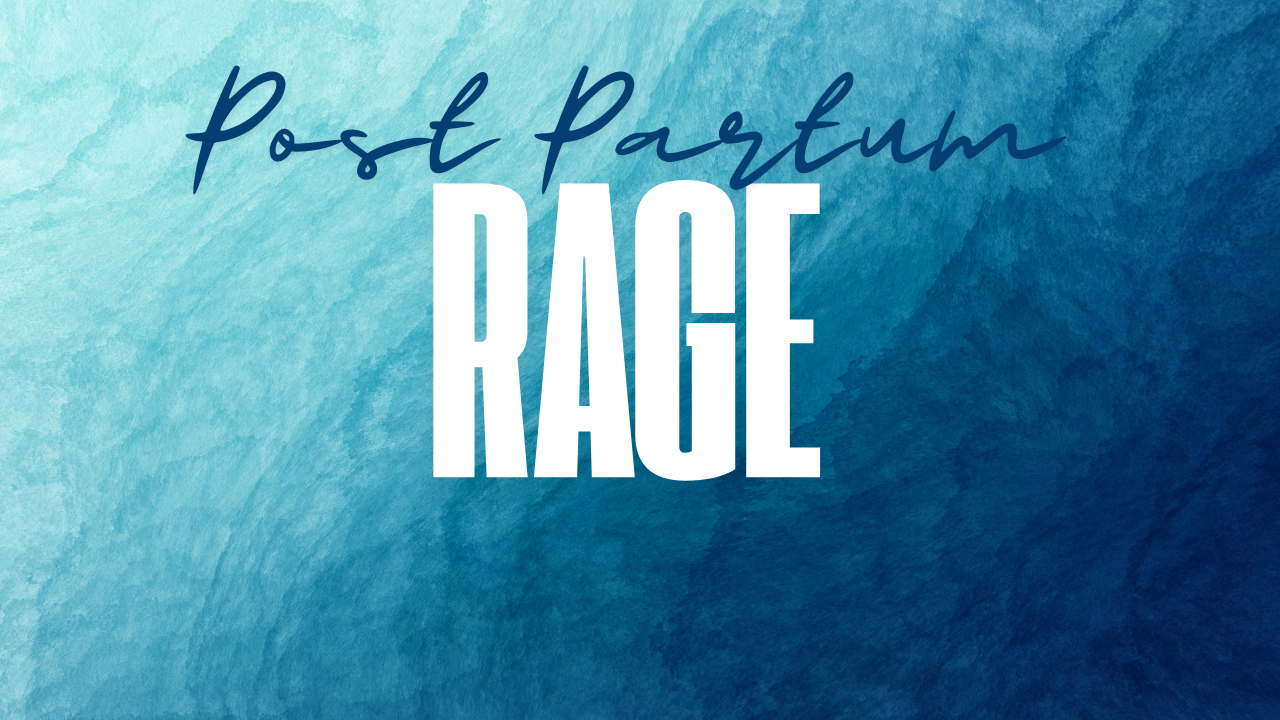Postpartum Rage Is Real: You’re Not a Bad Mom
Aug 31, 2025
I didn’t know postpartum rage was even a thing. I had heard of postpartum depression, of course. I’d heard of “baby blues.” But rage? That sounded too extreme, too shameful to say out loud.
And then it happened to me.
In the first few weeks after my daughter was born, I remember one moment so vividly I can still feel it in my body. My partner, wanting to let me sleep, took over the early morning wake-up. He changed her diaper, quietly trying not to wake me. But when nature called and he still had the baby. He panicked and did the best he could. What happened next wasn’t catastrophic—but it was messy.
I remember being jolted out of sleep, walking into the room, and feeling…
Not irritation. Not stress. Not frustration.
Rage.
It hit me like a tidal wave. I wasn’t angry at him—I knew he was trying to help. But I was recovering, leaking, exhausted, and constantly on alert. I hadn’t slept more than 90 minutes at a stretch. I woke up to chaos and the sound of someone calling for backup. I felt out of control. I snapped.
This is what postpartum rage can look like.
Certainly, the rage came out directed at him. And I have to own that with an honest apology: “I’m sorry. That wasn’t fair. I was overwhelmed, but you didn’t deserve that.”
Owning my behavior didn’t mean denying my feelings. It meant tending to both—so that trust could be rebuilt and I could feel good about how I showed up next time.
And here’s the good news: these moments don’t have to define you forever. Years later, we did laugh about that night. But that laughter came after the healing, after the repair, after the hard parts were faced with honesty.
Situational Overload vs. a Pattern
In those early weeks of parenthood, almost everyone feels overwhelmed at times. A single rough afternoon or even a few hard days doesn’t necessarily mean something is wrong. It could be situational overload — you’ve been awake too long, you’re overstimulated, and your nervous system is at its limit.
But postpartum rage can also become a pattern. The key question is:
Is this happening in bursts during high-stress moments, or is it showing up more days than not, for longer than two weeks?
If it’s been happening regularly for more than two weeks, or if the intensity feels unmanageable, it may be more than just exhaustion. That’s when it’s important to take it seriously and reach out for help.
Why Two Weeks Matters
Hormonal shifts, sleep deprivation, and the shock of a new routine can all trigger strong emotions in the first days and weeks postpartum. But mental health professionals often use the two-week mark as a signpost. If feelings of rage, hopelessness, anxiety, or emotional volatility last beyond that point — or if they start interfering with your ability to function or connect with your baby — it’s a signal to seek professional support.
And if your rage feels intense, frightening, or unsafe at any time, don’t wait two weeks. Reach out right away.
Getting Support Doesn’t Mean You’re Failing
When I finally opened up about my experience, I discovered I wasn’t alone. Other new moms told me they had slammed doors, yelled into pillows, or clenched their teeth until their jaw ached. They weren’t bad mothers — and neither was I. We were just humans at our limit.
Talking to a professional can help you understand what’s going on and give you tools to cope. For some, that might mean counseling or therapy. For others, it could involve medical evaluation for postpartum depression or anxiety. And for many, it’s a mix of support — professional help, partner communication, breaks from caregiving, and safe spaces to talk about the hard stuff without judgment.
Trust Is a Double-Edged Sword
It’s also worth saying: rage often shows up most fiercely around the people we trust the most.
Why? Because we feel safest to let our guard down with them. We spend all day regulating ourselves in public, at appointments, around visitors. But when we get home—when we’re with the person who “should understand”—we explode.
It doesn’t make it okay. But it does make it human.
Understanding that can help you move from shame to compassion—for yourself and those around you.
You’re Not Alone
If you’ve ever felt postpartum rage, you’re not alone. And you don’t have to pretend it’s not happening. You don’t need to carry the shame or silence.
You’re doing more than anyone can see. You are meeting constant needs, often without rest or recognition. Of course it’s hard.
Let someone hear you. Talk to your doctor, your partner, your friend. And if you need a neutral space to say the quiet things out loud—book a HOLD listening appointment. We’re here, with calm and compassion, for all the messy, overwhelming, unspoken moments of early motherhood.
You’re not a bad mom.
You’re a mom who’s feeling everything.
And we’re listening.
